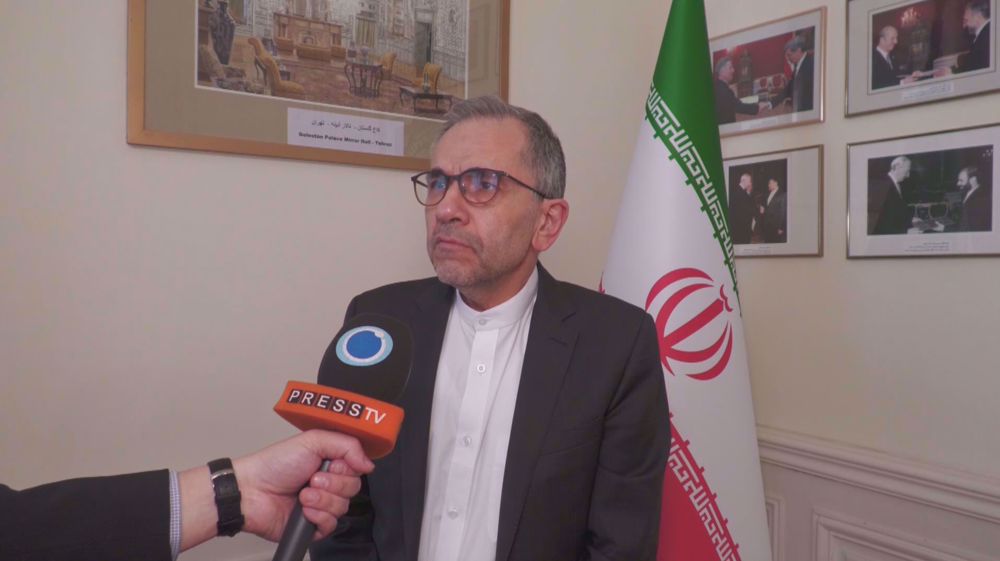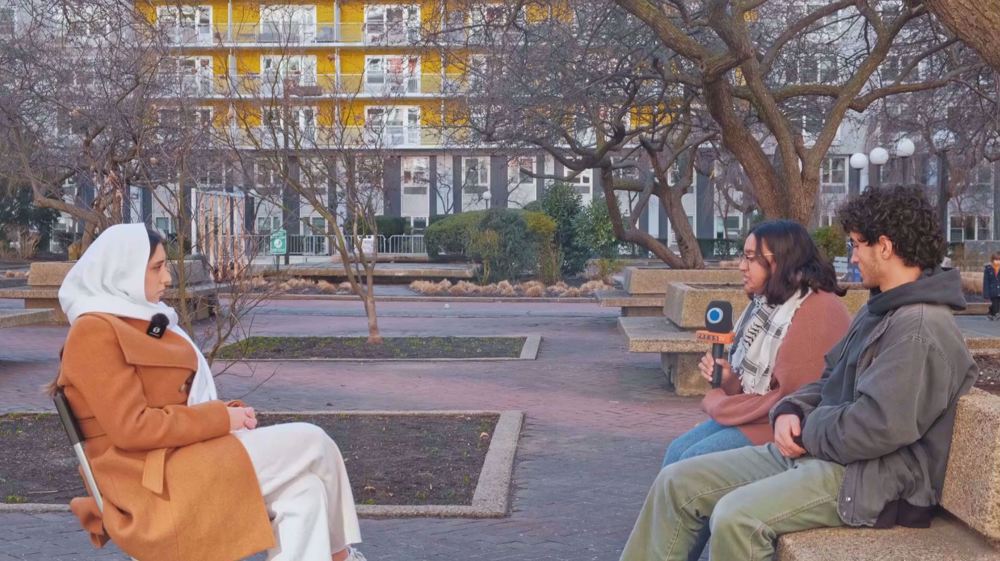Turkey paying price for Erdogan's interference in Syria: Analyst
Press TV has conducted an interview with James Jatras, a former US senate foreign policy analyst from Washington, to discuss the reasons behind a recent coup attempt in Turkey.
The following is a rough transcription of the interview.
Press TV: What do you think of all that has been going on in Turkey, the coup plot, the arrest of the coup leaders, the remarks by Erdogan?
Jatras: Well in any situation like this the first question is will the coup be successful? At this point it seems that it is failing but it's not over till it's over. Let's see what happens.
The next question obviously is who is behind it and for what purpose? Mr. Erdogan has specifically accused Fethullah Gulen, his one-time political ally, as being behind this. Gulen is of course based in the United States. There are allegations. I don't know if they're true or not that Gullen is connected with the American CIA.
On the other hand, President Obama has been explicit in his comments in support of President Erdogan. At the same time, let's look at the larger context. Turkey has shifted its regional policy somewhat in recent weeks, attempting to patch up things with Moscow, re-establishing diplomatic ties with Israel, and even talking about possibly reestablishing ties with Syria. This could be perhaps perceived as a blowback from their support for terrorist forces in Syria which now seem to have come back and hit them in Turkey most notably at the Istanbul airport. So, there are a lot of variables here, we don't know how they all fit together. First thing is let's see how this ends and then we see perhaps who is behind this and what they were trying to achieve and perhaps what powers, the external powers may have been connected to the coup.
Press TV: What you think about how the coup was staged? What are the reasons behind the coup’s failure and the fact that it was brought under control in a matter of only a few hours?
Jatras: Some people have speculated that that is itself somewhat suspicious that perhaps even Mr. Erdogan staged this himself as a means to finally crush any potential opposition in the party or the army or even in the country and seize total power. I don't know how likely that is but that's speculation exists. There is also speculation that it may have something to do with the leaders within the military that the coup is formulated that these are not necessarily the top officers which have been fairly purged by Erdogan anyway, they were people who perhaps didn't know what they were doing, don't have a commanding figure they could put forward, did not act with the decisiveness and let's be honest the ruthlessness that one needs to be prepared to use if one wants to launch a successful coup as they say if you try to kill the king you better make sure you succeed.
Press TV: Exactly and that's what some people say. I mean some say it was a poorly planned coup, others say it had been long in the making, it wasn't something that was staged and prepared for in a short matter of time. What do you think of that?
Jatras: Well if they hadn’t been planning for a long time you think one of the first things they would do would be to make sure they neutralized Erdogan himself. You think the first thing they would do is make sure they arrested him or took some other action to make sure that he was not able to rally his supporters as he appears to be doing in Istanbul. Once they failed to do that then the prospects of success are not on their side.
Press TV: Who would benefit from the coup? Do you think when we think of and consider the reactions from Turkey’s allies and major world powers, do you think they want Erdogan to stay where he is?
Jatras: That's where it gets interesting as well. Let's suppose Mr. Gullen is behind it. Who are the countries that would be closest to him? Again the speculation would be the top of the list the United States. There was the prospect of a Turkish rapprochement with Moscow bother some people here but then again as I say Obama explicitly supported Erdogan here. He had warmed relations with Israel. Would the Israelis want to see Erdogan brought down? Would they have those kinds of connections which they've had it in the past currently in the Turkish military? We don't really know and I think we will see more information coming out about this once this is over one way or the other but we may not ever know the full story.
Press TV: How about Turkey’s foreign policies, its involvement in Syria and in Iraq. Do you think this coup attempt had anything to do with Turkey’s foreign policy and if yes do you think there would be a shift in Turkey’s foreign policy from now on?
Jatras: I think that should have been evident in the last few weeks especially towards Syria and the concern about the blowback from the terrorists the turkey has been supporting there. I think there's some speculation that Turkey might finally be willing to work out an agreement with the Russians to close that border and the support for these terrorists to really set the stage for wrapping up the Syrian war. I don't think that's a done deal yet but … at least speculation has been that things were moving in that direction. Now there are some countries that don't want to see that, perhaps Saudi Arabia, perhaps other countries that have their thumb in the pie in Syria that but my suspicion is that is related to what we're seeing one way or the other how exactly I can't say at this point.
Press TV: And let’s consider the region, the regional countries, the balance of power in the region and security and stability in the Middle East which is already rocked by some crises and has always been sort of volatile. Do you think things have worked in the best interest of the region now that the coup has failed in Turkey?
Jatras: Perhaps so. If there is a shift in Turkish policy, if that shift continues, if Mr. Erdogan stays in power, we have to see how he perceives assuming that is the case. I am not sure the regional stability would be positively impacted if Turkey itself became destabilized domestically that there have been concerns not only with the renewed Kurdish insurgency within Turkey but the activities of terrorist groups whether connected to Daesh or maybe other groups based in Syria that could destabilize Turkey and that can only I think have a very destabilizing effect on the wider region.
Press TV: And you just mentioned the Kurdish insurgency. There has been an ongoing insurgency by the PKK, some attacks on Turkish soldiers and the ongoing clashes and confrontations between PKK militants and Turkish soldiers. What do you think would be the impact of this coup attempt on this insurgency by PKK?
Jatras: I don't know that the Kurds in Turkey are going to have many friends in Turkey at this point. Obviously, Erdogan had alienated them, they as you say were attacking the army ... I can't imagine they're particularly Kurd-friendly elements. I'm not sure where that leaves the Kurds domestically within Turkey at this point. The one party in Turkey that supports Kurdish aspirations is very hostile to Erdogan and vice versa. If his strength is increased now in Turkish politics, I think he will be moving close to frankly absolute dictatorial power at this point. I would not want to be a Kurd or representative of Kurdish interest in Turkey right now.

Press TV interviews Iran deputy FM on nuclear program, sanctions relief

The price we paid for freedom

ICC's arrest warrant for Netanyahu to worry Western politicians: Former British diplomat
Pezeshkian says relations with Iraq ‘priority’, hails proximity of two nations
China raises retaliatory tariffs on US goods to 125%
Reaching agreement ‘possible’ if US ends intimidation, threats: Iran’s deputy FM
‘Iran’s chemical warfare victims living proof of hollowness of West’s human rights claims’
China's oil imports from Iran surge despite US sanctions: Report
Official: Iran has surpassed West's 'arbitrary' redlines on nuclear tech
Mostly women, children killed as Israel expands Gaza onslaught
VIDEO | Press TV's news headlines






 This makes it easy to access the Press TV website
This makes it easy to access the Press TV website